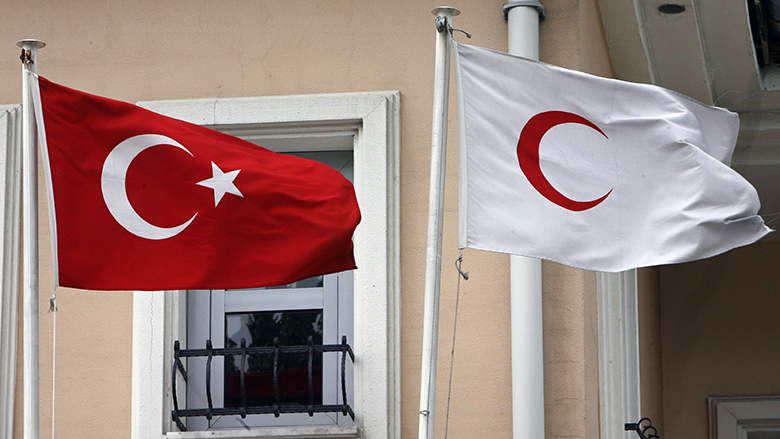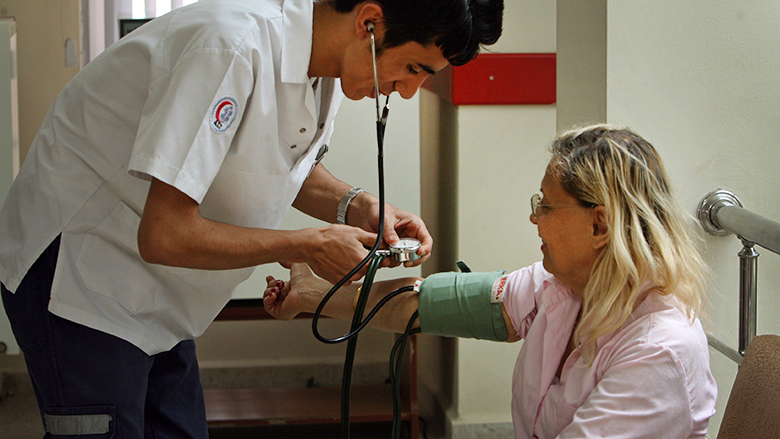Challenge
In the 1990s, health expenditures in Turkey averaged 3.8% of GDP - well below the OECD average (7.4% of GDP). Low health expenditures were compounded by an inequitable and fragmented health insurance system. In addition, Turkey had the lowest number of doctors and nurses per capita in Europe and one of the lowest nurse to doctor ratios. These shortages led to an unequal delivery of health services and access to health facilities in rural and urban areas, especially between the less developed eastern areas and the more developed western regions of the country. In addition to systemic challenges, Turkey was (and continues to be) confronting a rise of non-communicable diseases (NCDs), such as cancer, cardiovascular disease, and diabetes, and the challenges are compounded by the onset of aging among the population.
Approach
To address these challenges, the World Bank has supported Turkey’s HTP since 2003 with two Adaptable Program Loans (APLs). The Bank also provided technical guidance, and shared the experiences of other countries, during the creation of the family medicine system, which facilitated the introduction of community health centers (CHCs) at the primary care level. The Bank also provided technical assistance in the preparation of the Social Security and Universal Health Insurance Law of 2008, which unified the country’s social security system and made health services available to all. Turkey created a single purchaser model through which the Social Security institution assumed full responsibility for all health financing functions, including collecting revenues, pooling resources and expenditures and purchasing relevant goods and services. The various reforms undertaken have been monitored and broadly evaluated, with a strong emphasis on results, and with a focus on maintaining sustainability. The Bank’s global knowledge and expertise made it an effective partner for the government of Turkey to develop and implement these path-changing national health reforms.
Results
Universal health coverage contributed to improved health outcomes, enhanced fairness in financing, better financial protection, and increased user satisfaction as follows:
- Improvements in health services with a focus on prevention and public health have helped improve life expectancy and other health outcomes. Life expectancy at birth is now approaching the OECD average level. An average Turkish newborn in 2014 has the chance of living an additional 6 years (from 71.9, to 77.7 years), compared to a Turkish baby born in 2002.
- Under-five mortality fell sharply from 61 per 1,000 live births in 1993 to 37 in 2013, and infant mortality fell from 53 per 1,000 live births in 1993 to 15 in 2013.
- The 2008 Social Security Institution Law improved pension equity and sustainability and helped stabilize deficits in the pension system, although these deficits will remain long into the future.
- Between 2002 and 2012, the overall health workforce increased by 36 percent, growing from 295,000 to 460,000.
- Outpatient physician visits per capita have more than doubled, growing from 3.1 in 2002 to 8.2 in 2013.
- Turkey's health expenditures have increased from 5.4% of GDP in 2000, to 6.7% in 2011,
- Which led to significant declines in out-of-pocket spending (OOP) for health services. During 1999–2012 Turkey had a 47 percent reduction in OOP spending, the largest decline of all OECD.
- In 2003, only 39.5% of the population was satisfied with health services, whereas by 2011 this proportion had increased to 75.9%.
- While, only 24% of the poorest decile was covered by insurance in 2003, by 2011, health insurance coverage for the poorest decile had increased to 85%.

